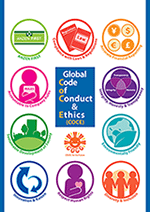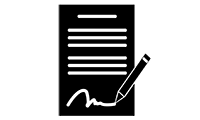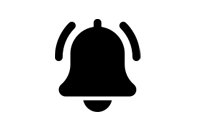CFAO is a group committed with strong principles of integrity, respect and transparency.
In 2017, CFAO adopted the Global Code of Conduct and Ethics (“COCE”) of the Toyota Tsusho Corporation group (“TTC”) which replaces the CFAO Code of Business Conduct applicable since 2010.
The COCE focuses on 10 key principles or “creeds” globally inspired from international standards and in line with the CFAO Code of Business Conduct.
THE TEN CREEDS
- We are committed to “ANZEN” to create a safe and healthy work environment
- We will comply with all applicable laws and regulations; including anti-corruption, anti-trust and competition law, and trade laws and regulations.
- We are committed to accurate financial reporting.
- We are accountable for compliance with all company rules.
- We will act with integrity, honesty and transparency, and protect and develop trust among all stakeholders.
- We will contribute to the sustainable development of society.
- We will promote and pursue environmentally friendly corporate activities.
- We will add value through innovation and “Kaizen” (continuous improvement).
- We will respect human rights.
- We will embrace diversity and inclusion within our company and society.
In May 2018, the Group compliance Committee has validated the issuance of two additional instruments the Anti Bribery & Corruption Policy (“ABCP”) and the Anti Bribery & Corruption Procedures (“ABCPR”) to confirm the commitment of our group to fight corruption and influence peddling and to adopt procedures to frame our actions in situations considered usually at risk.
In November 2022, as part of our continuous improvement of the CFAO compliance program, the Executive Committee validated the CFAO Group Anti-Corruption Code of Conduct, which is intended to supplement the COCE by defining more specifically, the fight against corruption and to replace existing policies by simplifying and harmonizing them within the Group. This Code is further supplemented by dedicated procedures relating to the whistleblowing procedure, the prevention of conflicts of interest and the evaluation of third parties, etc.
As part of its ethical approach and its legal obligations, CFAO Group has set up a Whistleblowing system called SPEAK UP.
Its purpose is to allow any person, Group employee or third party (customers, suppliers, business partners, etc.), to report a violation of law, or breach of company rules and/or behavior that they consider unethical or contrary to the rules set out in the Group’s compliance policies and procedures, namely: the Code of Conduct and Ethics (COCE), the Anti-Corruption Code of Conduct, etc.
This system is supplementary to the other available channels like hierarchy line manager; HR; appropriate Corporate department etc.
The SPEAK UP whistleblowing system is a dedicated communication channel to report alerts of potential cases of non-compliance, available at any time (24/7, 365 days a year).
Confidentiality and non-retaliation
Anyone who makes a report in good faith, will be protected. Be assured that you will not suffer as a result of raising an alert about potential non-compliance or misconduct. Any form of threat or retaliation will not be tolerated by CFAO.
CFAO undertakes to process all the data collected (particularly the identity of the whistleblower, that of the persons affected by the alert and the facts reported), with the highest degree of confidentiality and in accordance with the requirements of the European Data Protection Regulation.
For more information, please consult the Whistleblowing Procedure applicable within CFAO group.
External alert
- How to launch an external alert?
The Whistleblower, either after having made an internal report (via the company’s internal system), or directly, can make an external report to the competent authorities, the list of which is established by a decree of the Council of State.
The list of authorities competent to receive external reports is communicated via the following link: Decree No. 2022-1284 of October 3, 2022.
- What information should be reported via external channels?
Whistleblowers can report facts relating to:
– a crime;
– an offense;
– a threat or harm to the general interest;
– a violation or an attempt to conceal a violation of an international commitment regularly ratified or approved by France, of a unilateral act of an international organization taken on the basis of such a commitment, of the law of European Union, law or regulation.



